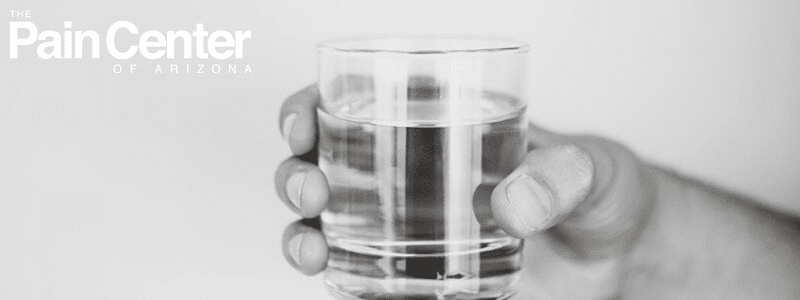
Headaches frequently accompany colds, flu, chronic pain, and even food poisoning. However, sometimes headaches occur seemingly at random, but there may actually be a reason – dehydration.
In this blog, we’ll look at dehydration’s impact on headaches through the following:
- Can dehydration cause headaches?
- Other symptoms of dehydration
- How do you avoid dehydration headaches?
- Does staying hydrated prevent migraines?
Can Dehydration Cause Headaches?
Believe it or not, dehydration can cause headaches. Dehydration occurs when we lose more fluids than we put in, and the body doesn’t have enough water and other fluids to carry out its normal functions. Dehydration can occur in any age group, and there are several causes.
Diarrhea and vomiting can lead to dehydration, as can an increase in urination. However, in the hot summer months, the main cause of dehydration is not drinking enough water or fluids to replace the water lost when you sweat. If you do vigorous activity – or are simply enjoying our hot summer climate – and don’t replace fluids as you go, you can put yourself at risk of dehydration.
A variety of unpleasant symptoms occur when this happens, including headaches. Dehydration headaches may cause pain at the front, back, or on either side of the head, or the pain may be felt throughout the entire head. Bending the head down or moving it from side to side often worsens the headache. Even simply walking can cause more head pain.
Other Symptoms of Dehydration

The initial symptoms of dehydration include thirst and minor discomfort, but can also include the following prior to, or during a dehydration headache:
- Fatigue
- Weakness
- Constipation
- Dry mouth
- Parched lips
- Dizziness
- Dry or flushed skin
- Rapid heartbeat
- Muscle cramps
A decrease in urine output, and urine that is dark or amber in color, is also a sign of dehydration. Severe dehydration can lead to low blood pressure, swelling of the tongue, unconsciousness, and even death in the most extreme cases.
Seek medical attention right away if you experience extreme thirst, feel unusually tired (lethargic) or confused, haven’t passed urine for eight hours, have a rapid heartbeat, or experience dizziness when you stand up that doesn’t go away after a few seconds.
How Do You Avoid Dehydration Headaches?

The key to avoiding a dehydration headache is by staying hydrated. Most people need 4 to 6 cups of water per day, though some may need to drink more or less. During exercise or exposure to hot weather, you’ll need to drink enough fluids to replace the water lost through sweat.
You can also help maintain an adequate fluid intake by eating foods that are naturally high in water content, such as vegetables and fruits.
It’s important to note that not all fluids are equal when it comes to fluid replacement. Coffee and alcohol are bad choices since both acts as diuretics. These types of beverages promote urination and fluid loss and can cause or exacerbate dehydration and headaches.
If someone is chronically dehydrated, they may not always feel thirsty before becoming dehydrated. That’s why it’s important to listen to the body in other ways and look for dry skin, dark urine, dry eyes, and other signs.
If you experience a dehydration headache, increase your fluid intake, replace lost fluid electrolytes with a sports drink, decrease your physical activity, and avoid heat to reduce sweating.
While 16 to 32 ounces of water or fluids should do the trick, drinking too much too quickly can lead to a sluggish, bloated feeling, so it’s best to gradually consume water every 10 minutes or so. For severe dehydration, you may need to slowly lie down and drink more fluids. In extreme cases, intravenous (IV) rehydration may be necessary.
Does Staying Hydrated Prevent Migraines?
Drinking enough water does more than just prevent dehydration headaches – it can also prevent migraines. While we do not know exactly what causes a migraine, we do know that dehydration is a known trigger for migraine headaches. One study even showed that when the study participants drank more water each day, they had fewer symptoms and less severe migraines overall.
Published On: June 26, 2019
Updated On: March 21, 2023




